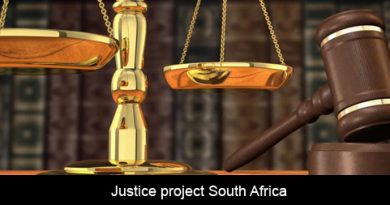How could a divorce affect your insurance policies and retirement planning?
Are you aware of the impact of divorce on your insurance policies and retirement planning? Have you taken the necessary steps to ensure that your financial needs will be cared for once you have to start all over?
We decided to approach some of the experts with a Q&A to gain some insights:
- Do you believe that South Africans are aware of the impact of divorce on insurance payment pay-outs?
I think this is an area that most South Africans do not have enough information on. Divorce does not have an impact on Life insurance (This does not include pension benefits as that is not technically seen as insurance). The payout of Life Insurance only become effective on death and are not included in divorce.
- Does a divorcee have any right to the retirement annuity or accrual from the pension fund of his/ her spouse?
In terms of section 7(7) the Divorce Act 70 of 1979
7)
a) In the determination of the patrimonial benefits to which the parties to any divorce action may be entitled, the pension interest of a party shall, subject to paragraphs (b) and (c), be deemed to be part of his assets.
b) The amount so deemed to be part of a party’s assets, shall be reduced by any amount of his pension interest which, by virtue of paragraph (a), in a previous divorce-
i) was paid over or awarded to another party; or
ii) for the purposes of an agreement contemplated in subsection (1), was accounted in favour of another party.
c) Paragraph (a) shall not apply to a divorce action in respect of a marriage out of community of property entered into on or after 1 November 1984 in terms of an antenuptial contract by which community of property, community of profit and loss and the accrual system are excluded.
Pension interest will be included in the division of assets at divorce if you are married in terms of the accrual system and if you are married in community of property but not if you are married out of community of property with the exclusion of the accrual system.
The inclusion and division of the pension interest must also be clearly specified in the deed of settlement, and there are very specific requirements that needs to be followed during the divorce process for this to be binding.
- Does it matter whether they were married within community of property or outside community of property but with or without accrual at the time of the divorce?
Answer provided above
- Is any claim possible to the provider of retirement annuities or would any claim need to be made directly to the spouse?
Payment of benefits in case of divorce
The first aspect that one has to understand is that any payment in respect of a divorce order is seen as a withdrawal benefit. Payment does not happen directly to the spouse but to another retirement fund.
The Divorce Amendment Act provides that a party to a divorce action may share in the pension interest of another party (the member of the fund).
- When are benefits payable?
Prior to the amendments to the Act, the Pensions Fund Act and the Divorce Act, an amount awarded to the ex-spouse upon divorce could not be paid until the member spouse exited the fund. With effect from 13 September 2007 the ‘clean break principle’ ensures that the ex-spouse can request the member spouse’s fund to pay the award in cash or transfer it to another fund. (This amount is taken from the member’s minimum individual reserve due to the fact that the member has not yet resigned from the fund.)
Section 37D of the Pension Funds Act is amended to follow the clean-break approach. The pension benefit will thus accrue to the member on the date of the court order, and not on date of retirement as it was in the past. Thus the amendment to the Act is now retrospectively applied.
- Do you find that life, retirement or other insurance policies are often addressed in a divorce settlement – is it something that you can or should prepare for in antenuptial agreements?
Divorce is a major life event. A clients situation from a financial planning perspective should be completely reviewed and re-evaluated after divorce. The ideal situation should be that a financial advisor is involved in the process during the Divorce, but unfortunately, that is seldom the case.
Are there any considerations to be aware of where the spouses were business partners and had key-person policies and buy and sell agreements in place?
As stated above, this cannot be a generic answer applicable to all situations. It will definitely depend on how the assets devolve during the divorce process and this will determined what the business situation would be and how the policies should be restructured.
- What are usually the “problem scenarios” with regards to policies during a divorce? Is it something that would require the advice and assistance of a qualified financial advisor and it is something that you would recommend?
The biggest problem is that people neglect to see a financial advisor after and during a divorce. The effect of divorce on your personal and business situation is substantial. You should do a completely new financial and estate plan for a client. A new will should be drafted, A client’s trusts should be amended, Their retirement situation should be recalculated and their insurance situation should be completely redrafted. This is something that clients neglect to do… A lot of times they just focus on surviving the fall out of divorce and settling into their new circumstances and then neglect to handle this aspect.
[A word of appreciation to Piet Swanepoel / Symington & De Kok]




